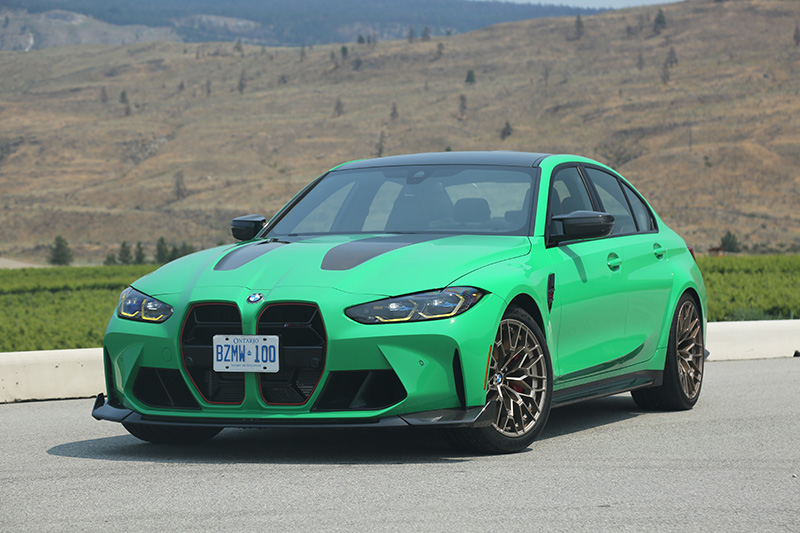
It used to be that there was pretty much one definition of a muscle car, the one formulated about 60 years ago. And that was a big block V8, making all the right sounds, but the car it was in not doing such a good job of slowing down or changing direction.
Nowadays, it is pretty common to see cars with many more horsepower than before, and of course, they all turn and stop better than even race cars did not so long ago. It’s a new definition of muscle, it takes at least 500 horsepower to play, and most manufacturers have entries in this performance segment.
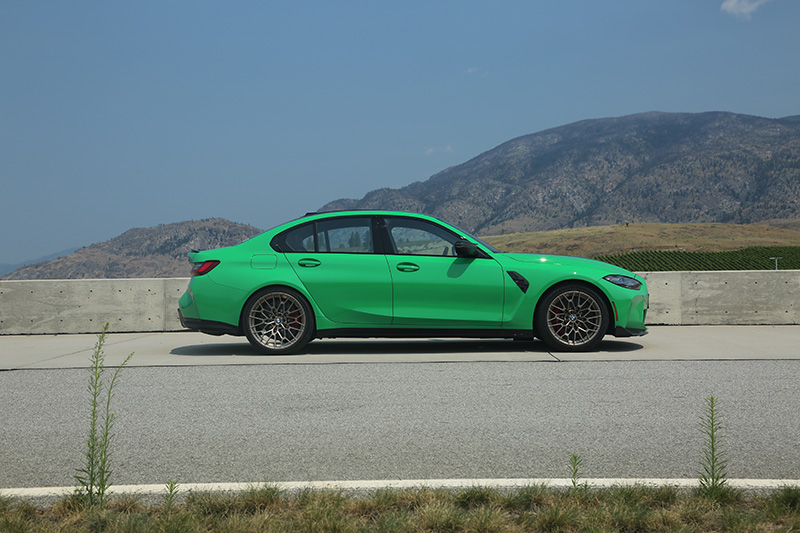
BMW is one of them. For over three decades, the German company has sold cars under the ‘M’ brand that are a step up from the ordinary. The M3 sedan has become an icon, and keeping it on the leading edge of performance requires new models with more power and capabilities, as the horsepower wars rage on.
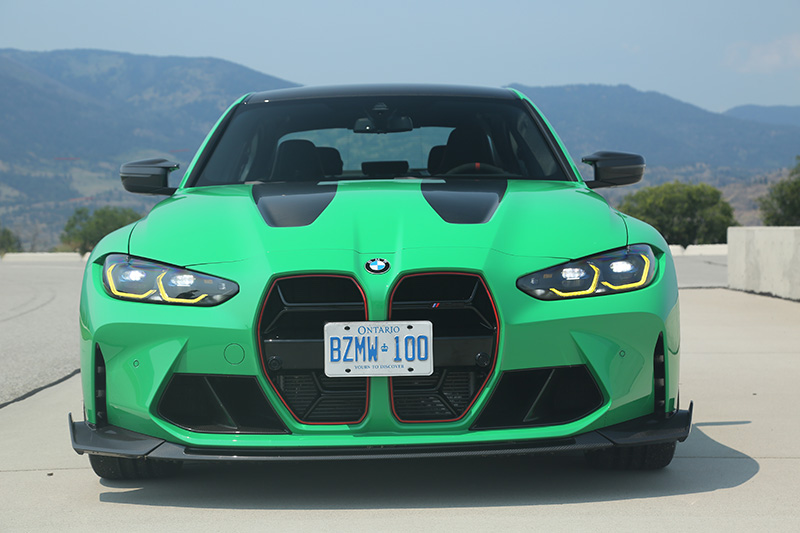
For most enthusiasts, the regular M3 is more than capable, but BMW improved it with a ‘Competition’ model that has right around 500 hp. Even that wasn’t enough, though. Enter the M3 CS, which stands for ‘Competition Sport’.
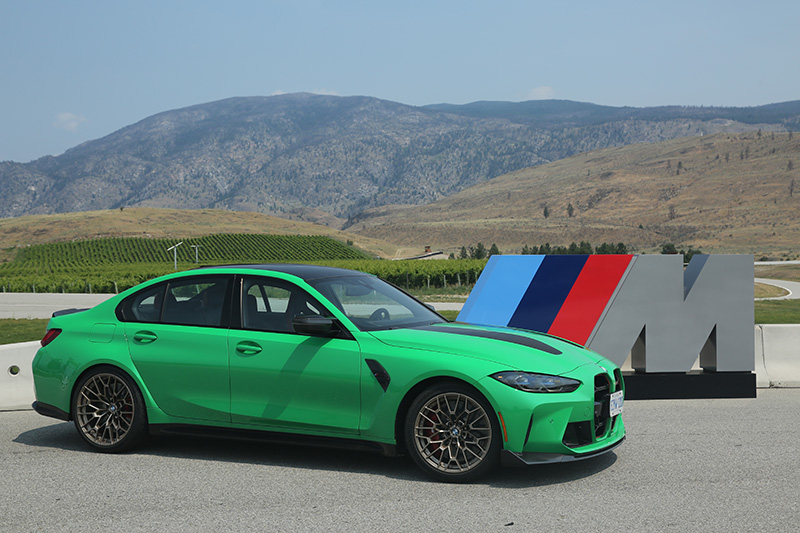
To show it off, BMW had us up to the Area 27 track in Osoyoos, B.C., to test it out where it could be driven to its potential – at high speed. For this, it was well-equipped, starting with the engine. It’s a 3.0-litre twin-turbo straight six, which could describe many BMW engines over many years; they have firmly kept away from moving to V6 engines. This particular one puts out 550 horsepower, not as much as some of the higher-powered cars, but still plenty. To put it in a bit of perspective, that is almost exactly 3 horsepower for every one of its 183 cubic inches, one of the highest such numbers in the industry. Torque is 479 lb-ft as low as 2,750 rpm. Much of its design is derived from its racing brother, including forged crankshaft. Zero-to-100 km/h is achieved in but 3.4 seconds, and it will continue up to 302 km/h. We saw 200 or so.
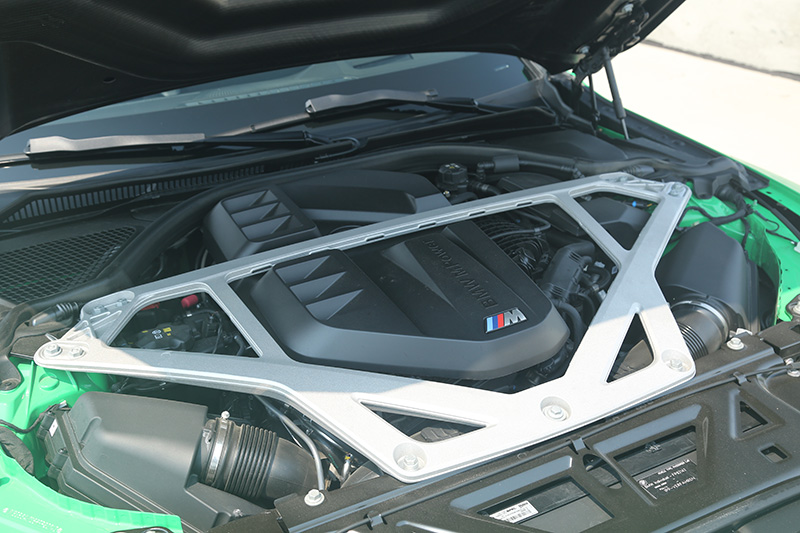
The rest of the drivetrain consists of equally high-performance parts. The transmission is an eight-speed automatic that is computer controlled and completely customizable for everything from easy highway driving to manual-shifting track use. A full manual transmission is not available, nor should anyone want one, so good is the automatic.
The power is sent to all four wheels, with a bias towards the rear end for a more sporty feeling. For those who just must, the Stability Control and front axle can be neutralized, and the M3 CS driver can drive with the back end sliding all over, which we proved by drifting one.
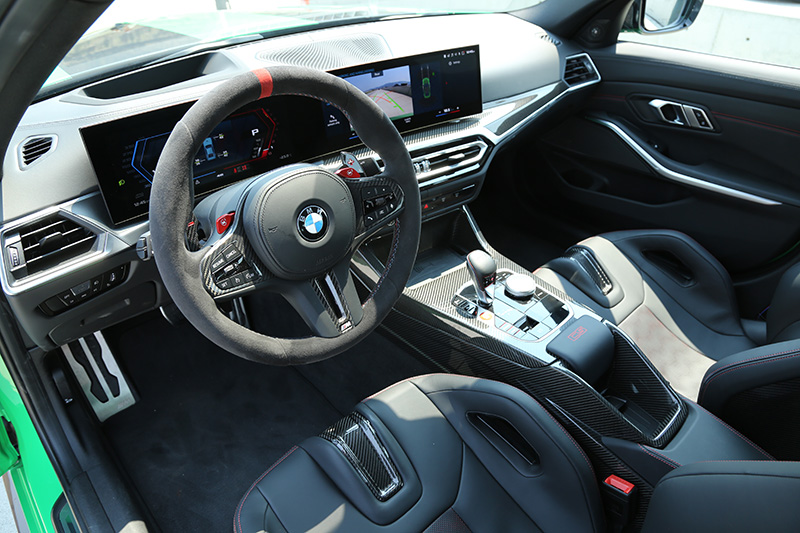
At the corners are a completely electronic adaptive suspension set-up, optional carbon ceramic brakes that work better the harder they are used, and treaded nearly-racing tires – Michelin Pilot Sport Cup 2 to be exact – mounted on forged alloy wheels which must be amongst the most beautiful ones I’ve ever seen. They, and our test car’s wild Signal Green paint, do distract one’s attention away from a certain other aspect of the M3’s design which has generated a lot of controversy, and we’ll leave it at that.
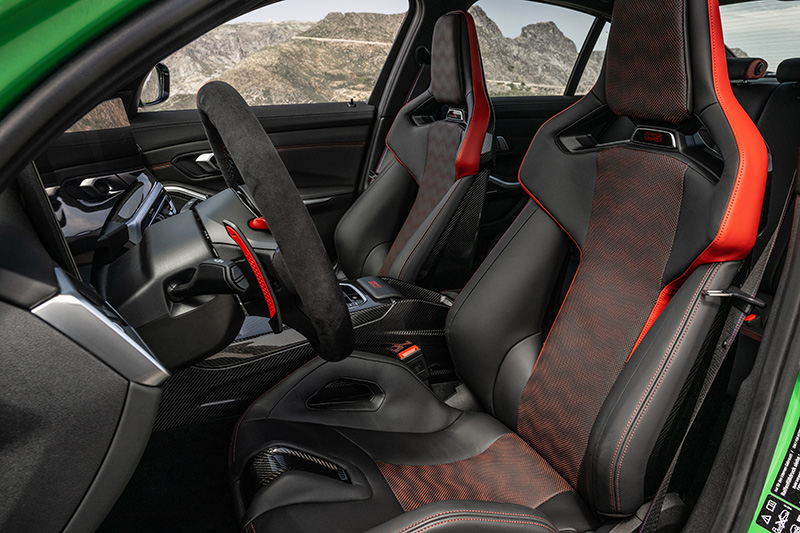
Aside from that, the M3 CS has undergone a serious weight reduction plan, with components as large as roof and hood, and as small as mirror caps and paddle shifters, made from carbon fibre reinforced plastic. Very visible are the large splitter under the front end that makes every curb something to avoid, and a rear spoiler that is thankfully discreet and not a big wing.
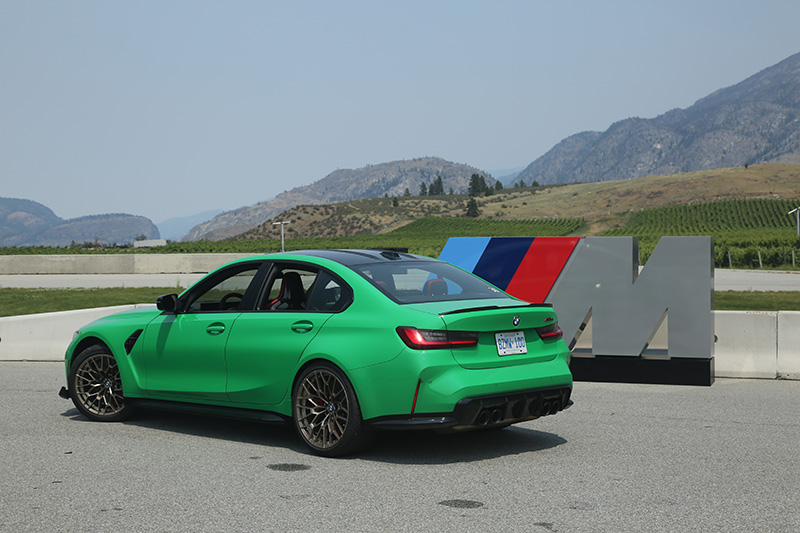
Inside, the look is pretty much regular M3, with carbon fibre trim and red stitching, with two big exceptions – the front seats. They are of a full-racing design, supremely supportive on the track under high g-loads, but one has to think they would become a bit confining in everyday street motoring, especially if you are a bit wider of beam, and having to contort to get your butt over the high side bolsters every time you get in or out of it. At least they are heated, electrically adjusted, and leather-trimmed.
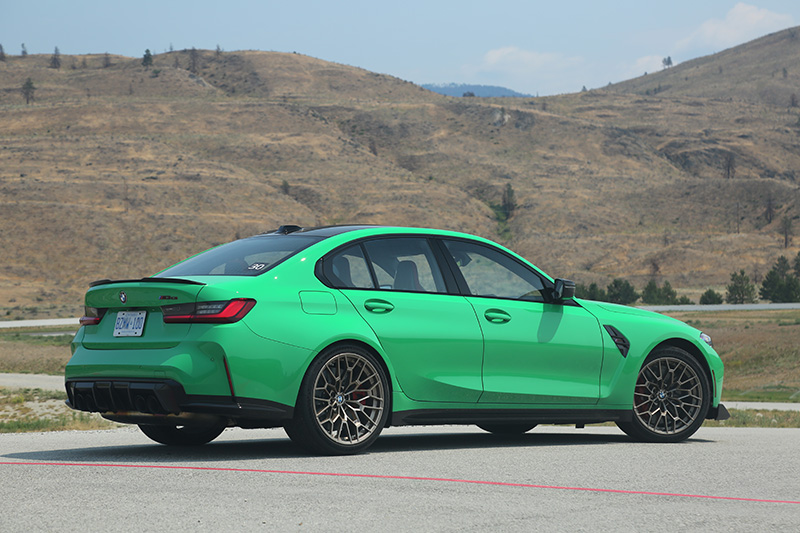
So those are the main highlights of the M3 CS. Impressions? One is just how much customization the driver can engage in, with every system in the car. Another is how ferocious and fast this two-ton sedan is on the track, considering it is a production street car. Another is the MSRP of $148,000, probably even more at the dealer given its limited quantities, a lot to pay for some capabilities that won’t be experienced unless it is driven on a track. If you have access to one, it’s worth the money.
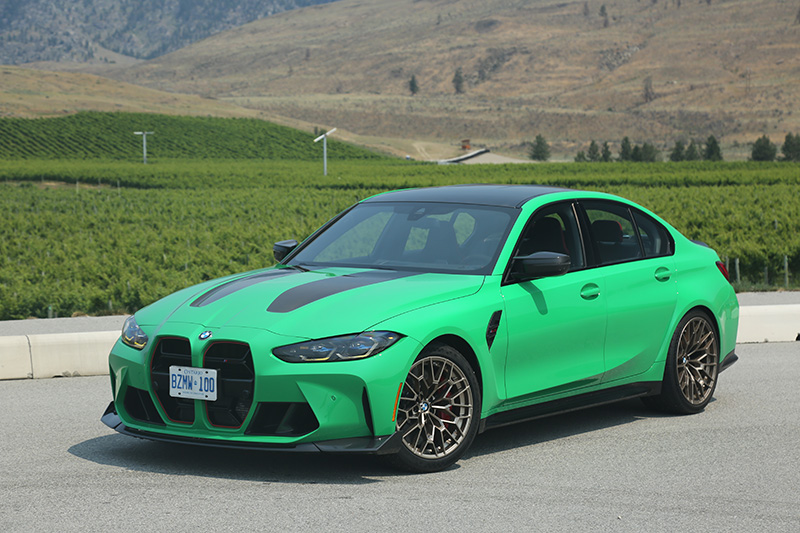
Photos by Gerry Frechette and Courtesy BMW Canada




